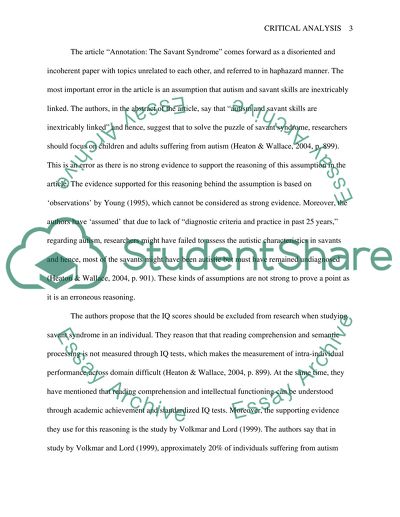Cite this document
(“Savant syndrome Term Paper Example | Topics and Well Written Essays - 1250 words”, n.d.)
Savant syndrome Term Paper Example | Topics and Well Written Essays - 1250 words. Retrieved from https://studentshare.org/psychology/1454050-savant-syndrome
Savant syndrome Term Paper Example | Topics and Well Written Essays - 1250 words. Retrieved from https://studentshare.org/psychology/1454050-savant-syndrome
(Savant Syndrome Term Paper Example | Topics and Well Written Essays - 1250 Words)
Savant Syndrome Term Paper Example | Topics and Well Written Essays - 1250 Words. https://studentshare.org/psychology/1454050-savant-syndrome.
Savant Syndrome Term Paper Example | Topics and Well Written Essays - 1250 Words. https://studentshare.org/psychology/1454050-savant-syndrome.
“Savant Syndrome Term Paper Example | Topics and Well Written Essays - 1250 Words”, n.d. https://studentshare.org/psychology/1454050-savant-syndrome.


